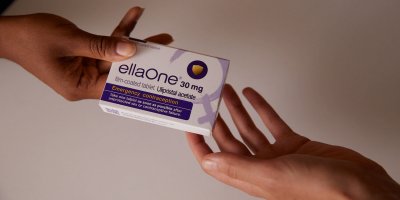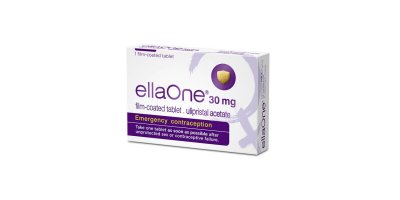Let’s just get this over with: if you have sex with someone and you don’t want to get pregnant, you should use contraception. You know that. Everybody knows that.
But we also know that contraceptive failure can happen. Condoms can break, and people sometimes forget to take their pill. People might also get carried away and forget to use contraception altogether, or use the pull out method because they don’t like condoms – which doesn’t work, by the way.
This article isn’t going to lecture you or tell you off. What we will do is explain the steps of what you can do after unprotected sex to help prevent pregnancy.
We spoke to Bethany Fawcett, Contraceptive and Sexual Health Nurse at Brook*, for some advice on what to do after unprotected sex.
If you have been sexually assaulted please seek help by either calling 999/111, attending A&E, your GP surgery, sexual health clinic or sexual assault referral centre.
“I had unprotected sex. What should I do?”
If you don’t use contraception, or if your regular contraceptive method lets you down, you can access emergency contraception to help protect yourself against an unplanned pregnancy.
“There are two types of emergency contraception,” says Bethany, “ the emergency contraceptive pill (often referred to as the morning after pill) and the copper intrauterine device (IUD).”
“A morning after pill containing ulipristal acetate can be taken up to 120 hours after unprotected sex. Alternative morning after pills containing levonorgestrel can be taken up to 72 hours after unprotected sex, but both are more effective the sooner you take them,” she continues.
The IUD (copper coil) can also be used as a method of emergency contraception. “ The IUD is the most effective method of emergency contraception and can be inserted up to 120 hours after unprotected sex or within 5 days after your expected ovulation. An IUD cannot be fitted if there is a risk that you are already pregnant,” says Bethany.
How do I know whether the morning after pill has worked? Find out more.
When can I take a pregnancy test after unprotected sex?
If your period is late, or if you have any other conerns about pregnancy, you may want to take a pregnancy test after unprotected sex. When will the pregnancy test be reliable?
“Emergency contraception can interfere with your normal cycle so it is recommended that you take a pregnancy test 3 weeks after the unprotected sex if you haven’t had a normal period for you in that time,” says Bethany, “it can take up to 21 days for a urine pregnancy test to show a valid result.”
“How long after unprotected sex should I get tested for sexually transmitted infections?
If you have unprotected sex with someone and you don’t know their status, it’s important to get an STI test to give yourself peace of mind and ensure you receive any necessary treatment.
Most STIs are fairly easy to treat and all are manageable with medication. If you don’t have time to attend a sexual health clinic, or you don’t feel comfortable doing so, you may be able to order a home STI test.
“It’s important to consider window periods when getting tested for STIs,” says Bethany, “A window period just means how long it will take from exposure for an STI to show up on a test. Different STIs have different window periods.”
“For example, chlamydia and gonorrhoea have a 2 week window period. If you get tested before that you may get a false negative result. However, if you think you have symptoms then it’s important to attend a sexual health clinic as soon as possible.”
“Certain HIV testing can be done as early as 4 weeks after exposure. However, for a valid and true result, it is recommended to have another test at 12 weeks after exposure; you can also test for Syphilis at this time too.”
“Chlamydia, Gonorrhoea, HIV and Syphilis are standard tests offered to everyone attending a sexual health clinic. Depending on your background you may be offered tests for Hepatitis A, B and C. For other STIs, such as herpes, genital warts and trichomoniasis, tests and treatment are usually provided based on symptoms.
What is PEP?
Post Exposure Prophylaxis (PEP) is a medication which can help prevent you becoming infected with HIV after a potential exposure to the virus. “If you think you have been exposed to HIV please attend a sexual health clinic within 72 hours. This is to ensure you are able to seek advice on accessing PEP for HIV,” says Bethany.
“Should I use contraception with a new partner?”
We bang on about this a lot, but it is really important to use contraception with your partner unless you want to get pregnant. You should also use a barrier method, such as condoms, if you don’t know your partner’s status so you can protect yourself from STIs.
“If you are using another contraceptive method to prevent pregnancy, you can still use condoms alongside this to prevent STIs,” says Bethany, “if you have unprotected sex or the condom breaks or comes off, it is important to get tested to check whether you have an STI and to access emergency contraception if you are not using another contraceptive method.”
“I’m a lesbian. Do I still need an STI test?”
Just because there is no risk of pregnancy doesn’t mean you shouldn’t use contraception. “Women who have sex with women are still at risk of STIs as there is an exchange in body fluids,” says Bethany, “oral sex has a lower transmission rate for STIs than vaginal or anal sex but there is still a risk.”
“In general, the person giving oral sex is most at risk of an STI, however this is not the case for herpes. STIs can also be passed on through the use of sex toys if they are shared or not cleaned properly, so it’s important to use condoms on sex toys if you are sharing them.”
The morning after pill is nothing to be ashamed of
You can be the most careful person in the world and still experience contraceptive failure. It doesn’t matter how old you are, or how many people you’ve slept with. Sometimes these things just happen and you shouldn’t feel judged or ashamed for taking control of the situation.
If you have ever taken the morning after pill, share your story below to help us end the stigma around emergency contraception. Want further information about taking ellaOne?
*Bethany Fawcett does not endorse any medicinal products or brands.
ellaOne® 30mg film-coated tablet contains ulipristal acetate and is indicated for emergency contraception within 120 hours (5 days) of unprotected sex or contraceptive failure. Always read the label.








